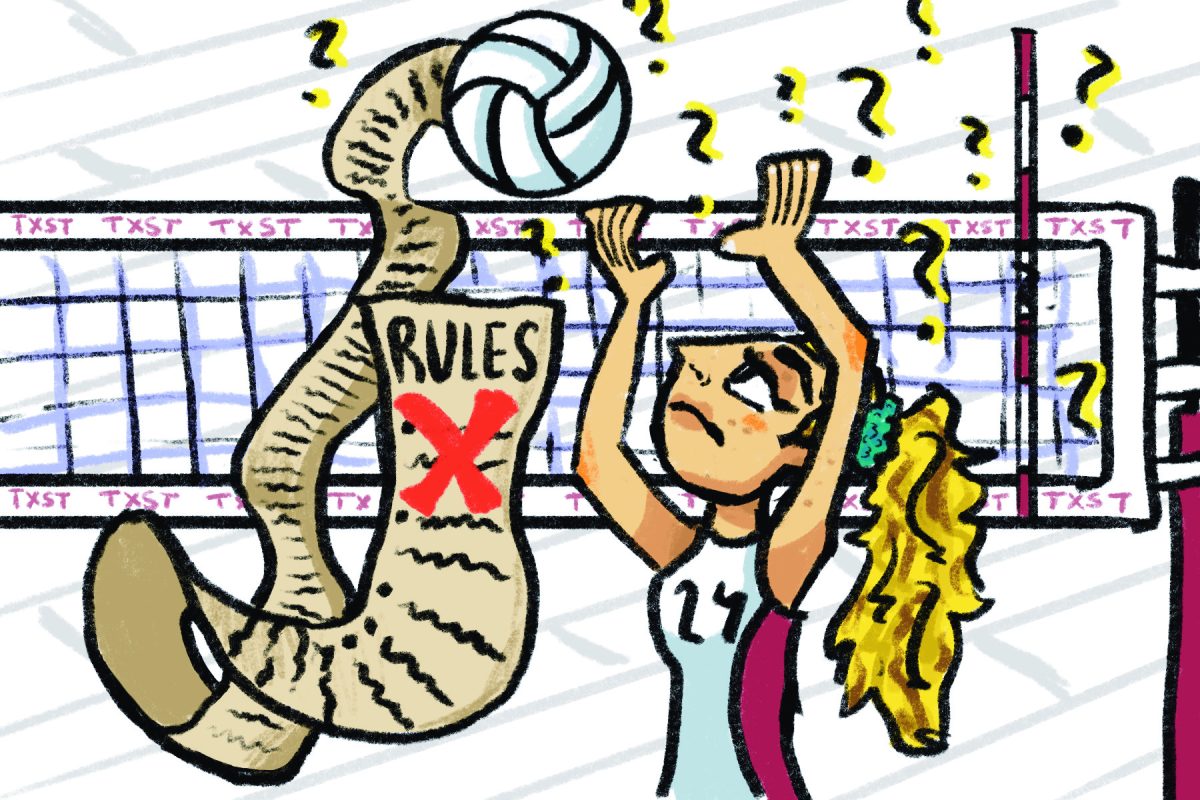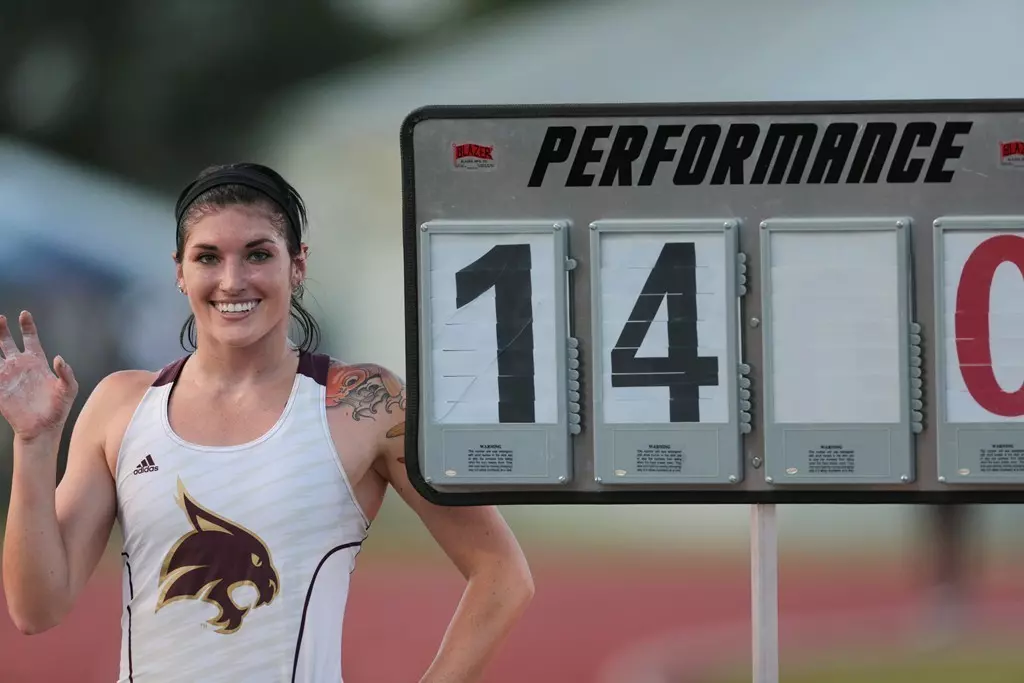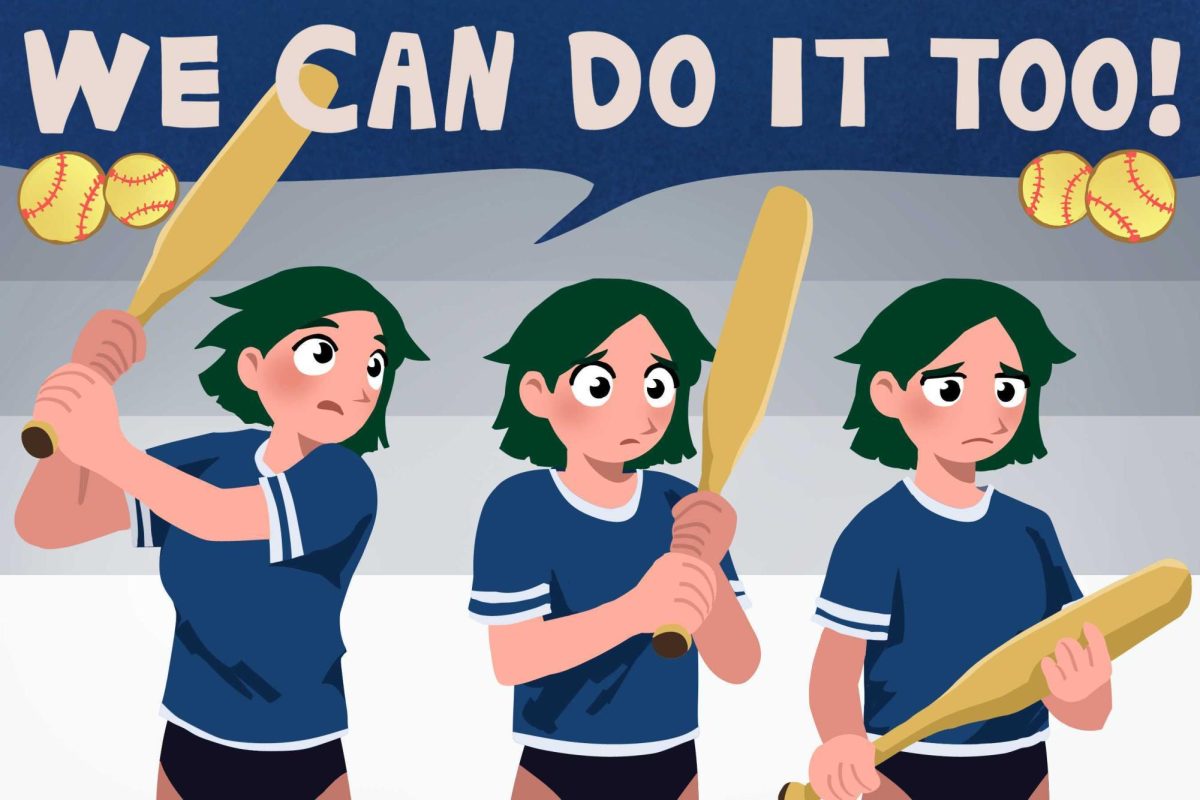For over a century, the double contact violation has been a rule implemented in modern volleyball. Many players are taught from a young age how to correctly hit the ball to avoid this violation.
Suddenly, collegiate volleyball athletes are being forced to adapt to a new rule change after the NCAA Playing Rules Oversight Panel decided to overturn its double contact rule in February.
When it comes to rule changes in athletic sports, it’s almost an inevitable event that seemingly occurs every five years. The double contact violation was introduced in 1922 and has remained in effect until now.
The 2024 volleyball spring season for Texas State has steadily gone underway, and senior setter Ryann Torres will have the rest of her senior season to adjust to the rule change.
The 2023 volleyball season saw Torres tally up a whopping 813 assists on the year in 24 matches played, marking the highest of any season in her career.
Torres, who started her collegiate journey with Texas State in 2020, clearly had a lot of success adapting to her new role as the primary setter for the team. Moving forward, it will be interesting to see how this rule change will affect Torres’ performance, if at all.
According to VolleyballMag.com, Lyndsey Oates, Northern Colorado volleyball head coach and member of the NCAA volleyball rules committee, said this decision is going to be a significant change in the sport.
“I would say it was a very good discussion. I mean, we talked for hours,” Oates said in a VolleyballMag.com article. “We just wanted to make sure we got it right. It’s a fairly significant change and we wanted to make sure we thought of everything.”
The double contact violation in volleyball occurs whenever a player, typically at the setter position, touches the ball with various parts of the body twice in succession. This violation can also be detected based on the rotation of the ball as it skies into the air, which is how referees typically detect the double contact.
When a setter touches the ball, they are specifically trying to set up their teammate who is in position to spike the ball over the net in an attempt to score a point.
Touching the ball more than once can guarantee a turnover practically every time. Overturning this violation now grants setters an excuse to set the ball poorly and practice incorrect form at one of the highest levels of the sport.
Not only does the change enable poor coaching and discipline at the highest levels, but it takes away from the talented setters who have learned to play a specific way their whole lives. The change also has the potential to affect incoming freshmen who must adjust to the new rules when coming out of high school.
Many setters have carried the discipline of hitting the ball correctly for years, and this change not only forces players to adapt to a different playstyle, but it allows a lesser-skilled player to fill the same role for a team.
In an interview with WICA News, University of Illinois junior setter Brooke Mosher said the rule change is tough for her because her hard work in technique has now gone out the window.
“I think it does take away from the craft that setters have worked so hard to put in and now for it to be taken away is a little bit, not demoralizing, but tough that it’s just gone,” Mosher said in an WICA News interview. “All that work that I’ve put into that [is gone].”
Many members of the rules committee agree this change is beneficial because it can help the referees with fewer judgment calls.
Furthermore, the NCAA said changing the rule can hopefully lessen arguments between players and refs, offer consistency to the game and promote the continuation of play which offers more fast-paced excitement.
Despite the small benefits. the rule change lacks consideration for players who actually perform on the court. This rule change affects players at the setter position all across the nation.
Texas State redshirt freshman setter Carlee Pharris can potentially be one of the affected players, given her position as a setter.
Pharris has just one year of experience playing at the collegiate level after sitting out as a redshirt freshman at TCU, managing to record over 300 assists in just 15 matches played in her first season.
Given that Pharris has barely completed her first year of volleyball at the collegiate level, its likely she’s learned her role and how to be successful all season. With the rule change, Pharris may be forced to pick up on new techniques in order for her to continue playing at a high level.
Though this may seem easy, it changes things when a player has spent nearly two years learning different systems and ways to be an effective player on the court.
The 2024 spring season has arrived and though it is rather short in length and lacks the attention and accolades compared to a normal season, Bobcat fans still have the opportunity to analyze how this rule change can affect the players early on.
The NCAA rule change lacks consideration of the veterans and dedicated setters of the sport. It will be interesting to see how this rule change can affect the Texas State volleyball team as the season progresses.
-Kobe Arriaga is a journalism senior
The University Star welcomes Letters to the Editor from its readers. All submissions are reviewed and considered by the Editor in Chief and Opinions Editor for publication. Not all letters are guaranteed for publication.































